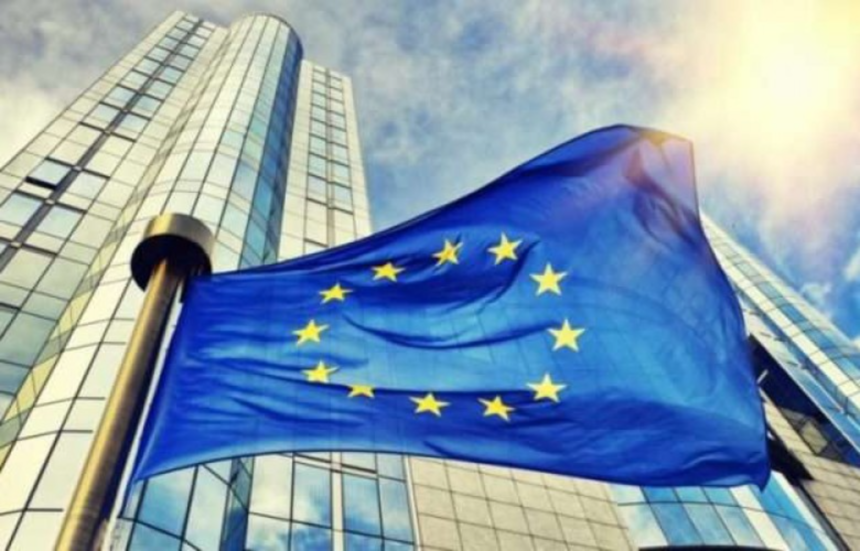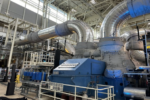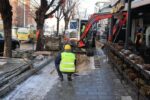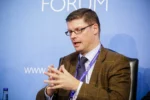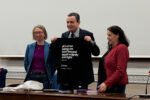The European Union (EU) diplomats monitoring the Balkans are viewing Kosovo’s parliamentary elections, scheduled for February 9, 2025, as an opportunity to normalize the situation in the north and regain the trust of Serbs living in that part of the country towards Kosovo’s authorities.
According to sources from Radio Free Europe (RFE), the EU has long been concerned about the challenges in northern Kosovo, including security issues and the lack of proper conditions for Serbs to vote freely and have access to pluralistic elections as other regions of Kosovo. In previous electoral cycles, EU internal reports have highlighted the intimidation and pressure faced by candidates who did not have the backing of Belgrade or the Serbian List. There has also been no open or equal campaign, and Serbian-language media have been under pressure.
One of the key concerns for the EU has been the situation regarding the representation of Serbs after their coordinated resignation from Kosovo’s institutions in November 2022 and the boycott of local elections in April 2023.
RFE sources stated that while Serbia claims the boycott was the result of decisions made by the Serbs in northern Kosovo, it played a key role in orchestrating their withdrawal from Kosovo’s institutions at that time, and this boycott continues to this day.
Since 2022, the EU has consistently reported that the withdrawal of Serbs from Kosovo’s institutions represents a violation by Serbia of its obligations under the dialogue framework and marks a significant regression in the implementation of the April 2013 Agreement.
Before the Serbs’ boycott, the EU had highlighted their participation in Kosovo’s institutions as one of the greatest successes in the overall dialogue process.
“Although we have continuously expressed dissatisfaction with the unilateral steps taken by Kosovo’s authorities, we have not hesitated to criticize Serbia for the significant blow dealt to the normalization process and the dialogue as a whole by the withdrawal of Serbs from institutions in the north,” an EU diplomat told RFE.
EU diplomats are hopeful that the beginning of the next year will bring a more positive atmosphere in northern Kosovo and more constructive behavior from both Kosovo and Serbia in the dialogue process. This expectation is also tied to the lack of progress in both Serbia’s and Kosovo’s EU integration processes.
Serbia did not open any new chapters in the negotiation process for EU membership in December, despite the European Commission confirming that Serbia had met the necessary technical conditions. The lack of progress in normalizing relations with Kosovo is one of the obstacles to Serbia’s EU advancement.
EU leaders also acknowledge that Kosovo’s EU membership application is linked to progress in the dialogue process.
Sources within the EU have expressed encouragement about the agreement between Kosovo and Serbia at their last meeting under the dialogue framework for the implementation of the Declaration on Missing Persons. They believe this could mark a new moment leading to further progress in the dialogue.
On the other hand, Serbia’s call for Serbs in Kosovo to participate in Kosovo’s elections has been seen as a positive sign that Belgrade has understood the need to be more constructive. This call, expected to have a significant impact on Serbs in Kosovo, was welcomed in the conclusions of the EU’s General Affairs Council.
At the same time, the EU expects that the reintegration of Serbs into Kosovo’s institutions should occur without any preconditions.
“The Council takes note of Serbia’s September 2024 call for Serbs in Kosovo to participate in elections organized by official Pristina and to reintegrate into all Kosovo institutions from which they withdrew in 2022. The Council reiterates its expectation for their swift reintegration without preconditions from Serbia, in line with the agreements from the dialogue and fully respecting Kosovo’s legal framework,” stated the EU member states’ ministers in conclusions adopted on December 17 in Brussels.
The EU expects that not only will Serbs participate in the elections, but those who receive mandates will exercise them responsibly—by actively participating in the work of Kosovo’s Assembly and at other levels of governance and public life.
The EU’s observation mission for Kosovo’s elections will also pay special attention to the electoral process in the north of the country, monitoring the exercise of voting rights by all ethnic groups, including those from minority communities.

